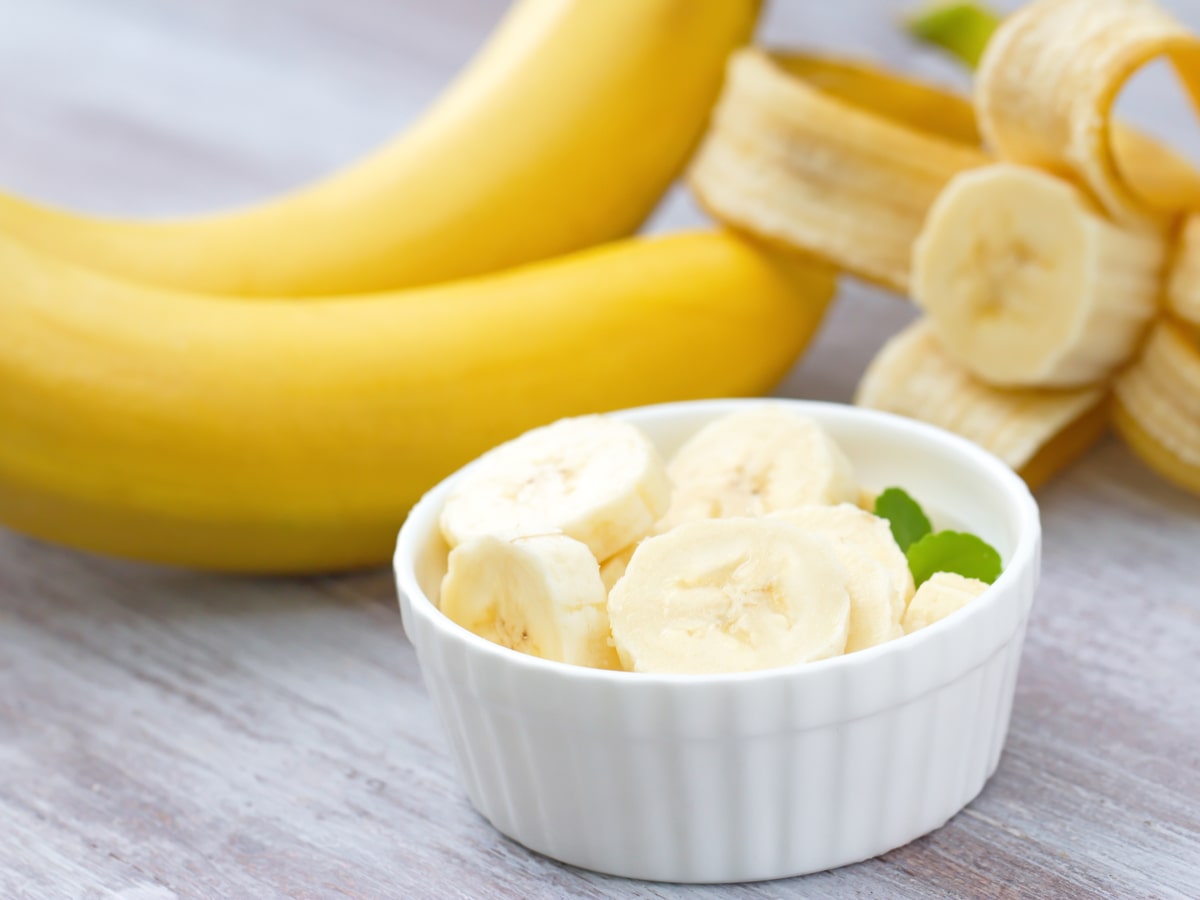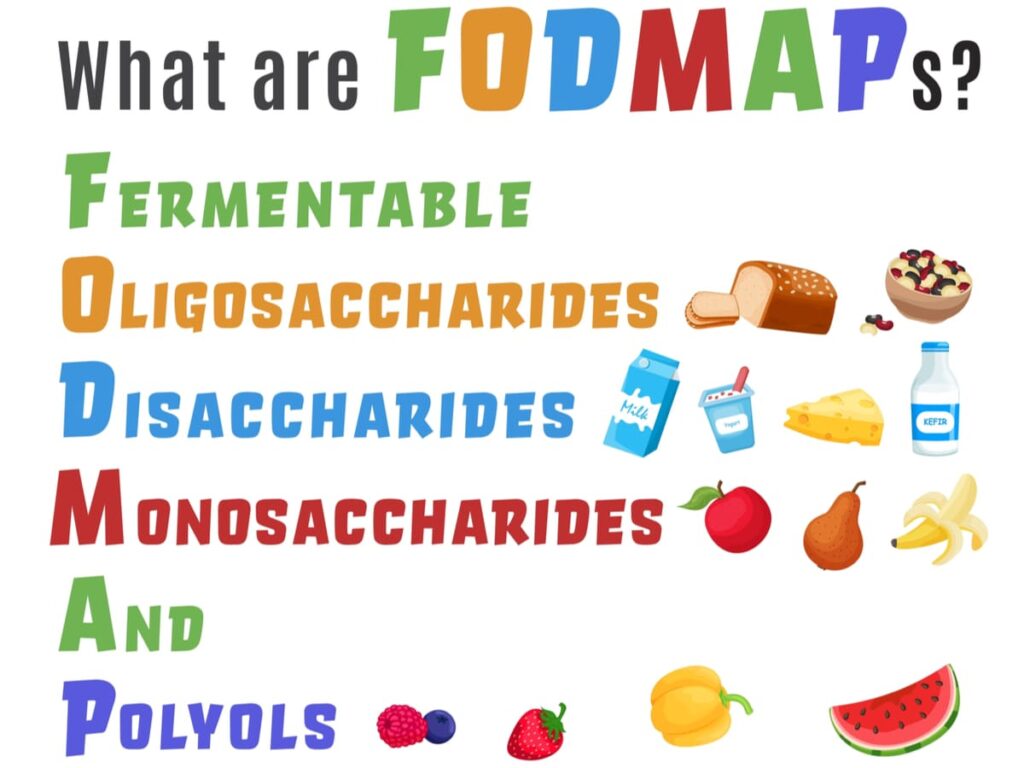
Irritable bowel syndrome (IBS) brings a whole host of problems. The symptoms impact daily life, often without a clear reason and therefore without warning. Because of this, it can be difficult to pinpoint which foods are responsible for symptoms flaring up and which foods are safe.
When searching for foods that are likely to agitate IBS symptoms, FODMAP is a term you are almost certain to come across. It’s quite a mouthful, standing for fermentable oligosaccharides, disaccharides, monosaccharides, and polyols. This acronym refers to carbohydrates that are quickly and easily fermented. While these are foods that are considered healthy, when the gut is disrupted, these can contribute to symptoms such as bloating or cramping.
Needless to say, foods with a high concentration of FODMAPs can be a catalyst for IBS symptoms. So it is usually advisable for sufferers of IBS to avoid them for a period of time to assess for sensitivities.
To this end, an often suggested diet for people with IBS is one low in FODMAPs. A low FODMAP diet has been found to benefit people with IBS. With this study being one such example, in addition to being one that doesn’t pose a risk of agitating symptoms.
In this article, we will discuss whether bananas have a place in such a diet. Whether they have a low or a high FODMAP content, and whether someone with IBS should include bananas in their diet.

Do Bananas Have a High or Low FODMAP Content?
In short, the FODMAP concentration in bananas is directly tied to their state of ripeness. Once a banana ripens, it contains a high FODMAP content. Making ripe bananas unsuitable for people with IBS or adhering to a low FODMAP diet.
Ripe bananas contain high amounts of FODMAPs as a result of the ripening process. As they ripen, bananas produce a FODMAP called oligofructose, or fructooligosaccharides. The gut has difficulty digesting this FODMAP and may potentially aggravate a sensitive gut. As such, it may be best for people with IBS to steer clear to help manage symptoms.
On the other hand, unripe bananas do not contain such a high level of this FODMAP. They might not taste quite as nice, not being nearly as soft nor as sweet as ripe bananas, but they aren’t likely to cause a sensitive gut any distress.
That being said, ripe bananas aren’t a forbidden fruit completely. Small amounts of a tasty food, though one with potential for contributing to IBS symptoms, can often be consumed without negative effects. This is also true for ripe bananas.
If you would really like to include ripe bananas in your diet, roughly up to a third is considered low FODMAP and may not lead to any reaction.
Are Bananas a Good Choice for People With IBS?
Although ripe bananas can be consumed in small amounts, it may be advisable to stick to a low FODMAP diet when attempting to handle your IBS symptoms. This doesn’t rule out foods containing FODMAPs completely, but limiting specific FODMAP triggers can help IBS symptoms while the underlying issue is being addressed.
FODMAP trigger foods are something that varies from person to person. A third of a ripe banana might be perfectly fine for one person. But for another, the food itself may be a trigger for IBS symptoms regardless of the amount.
Unfortunately, the only way to find out is by eliminating and reintroducing these foods. However, if you know that bananas aren’t a trigger food, then these are healthy to consume.
What Causes IBS Symptoms?
One last aspect to this question exists. While not true in every case, an imbalance in the gut ecosystem may be the underlying reason for IBS symptoms and food reactions. If you would like to introduce bananas into your diet, or any other high FODMAP food for that matter, this can be the best approach following the elimination phase of the diet.
This is where high FODMAP foods are eliminated for a short period of time. Then reintroduced in a specific order to assess for specific foods that are an issue.
A downside to a long-term low FODMAP diet is that you will deprive your gut and the myriad bacteria within it of a food source that encourages the growth of certain beneficial microorganisms. Once the imbalance is dealt with, reintroducing high FODMAP trigger foods becomes an option. Albeit one you should approach carefully and with the support of a practitioner.
In summary, it may be best to avoid bananas completely for a short period. Then to reintroduce them to gauge if they are a trigger food or not. If this is the case, up to a third of a ripe banana at once is unlikely to upset your gut. Though the exact threshold can vary depending on the individual in question.
After adhering to a low FODMAP diet, you might be able to reintroduce bananas and other high FODMAP foods. Though tread carefully. Rushing to include many high FODMAP foods may lead to an increase of symptoms. Without any clarity into which food was the issue.
Low FODMAP Banana Substitutes
If you particularly enjoy bananas in your diet, you might want to consider some of these alternatives. While not identical, these banana substitutes might tide you over throughout the duration of your diet.
Firstly, provided bananas aren’t a trigger food for you, consider including bananas in baking. By baking desserts with a ripe banana, you’ll get more out of it without risking much in the way of a symptom flare-up.
If baked goods aren’t of interest to you, there are plenty of other substitutes that might be more your cup of tea. The first is plantain, a food incredibly similar to bananas, though with a somewhat different taste. Plantains aren’t as sweet as bananas, nor as soft, and are typically eaten cooked. As with bananas, plantains do become sweeter as they ripen, though not to the same extent. Cooking plantains do tend to bring out a similar level of sweetness, however.
Should plantains not be enough, and you would prefer a sweet fruit to a more starchy substitute, you’ll be pleased to know you have a good number of options. Plenty of sweet fruits have a low FODMAP content, strawberries, grapes, and oranges being a few examples.
Other sweet fruits, such as melons, are high FODMAP foods. Though they can be enjoyed provided you have a small serving. As with bananas, consider avoiding them entirely if you think they may be a trigger food.
Conclusion
Ripe bananas have a high FODMAP content, making them a potential trigger for people with IBS. Unripe bananas, however, are low in FODMAPs. While suitable for people with IBS generally, they could be a trigger food for some. This is where a personalised approach to the low FODMAP diet is often required.
Plenty of alternatives exist that can provide the sweetness of bananas while not posing the same risk of agitating IBS symptoms. Substituting bananas for some of the aforementioned fruits could give you the best of both worlds. If you are unsure which fruits or other banana alternatives to introduce into your diet, consider contacting a nutritional specialist to learn more.






